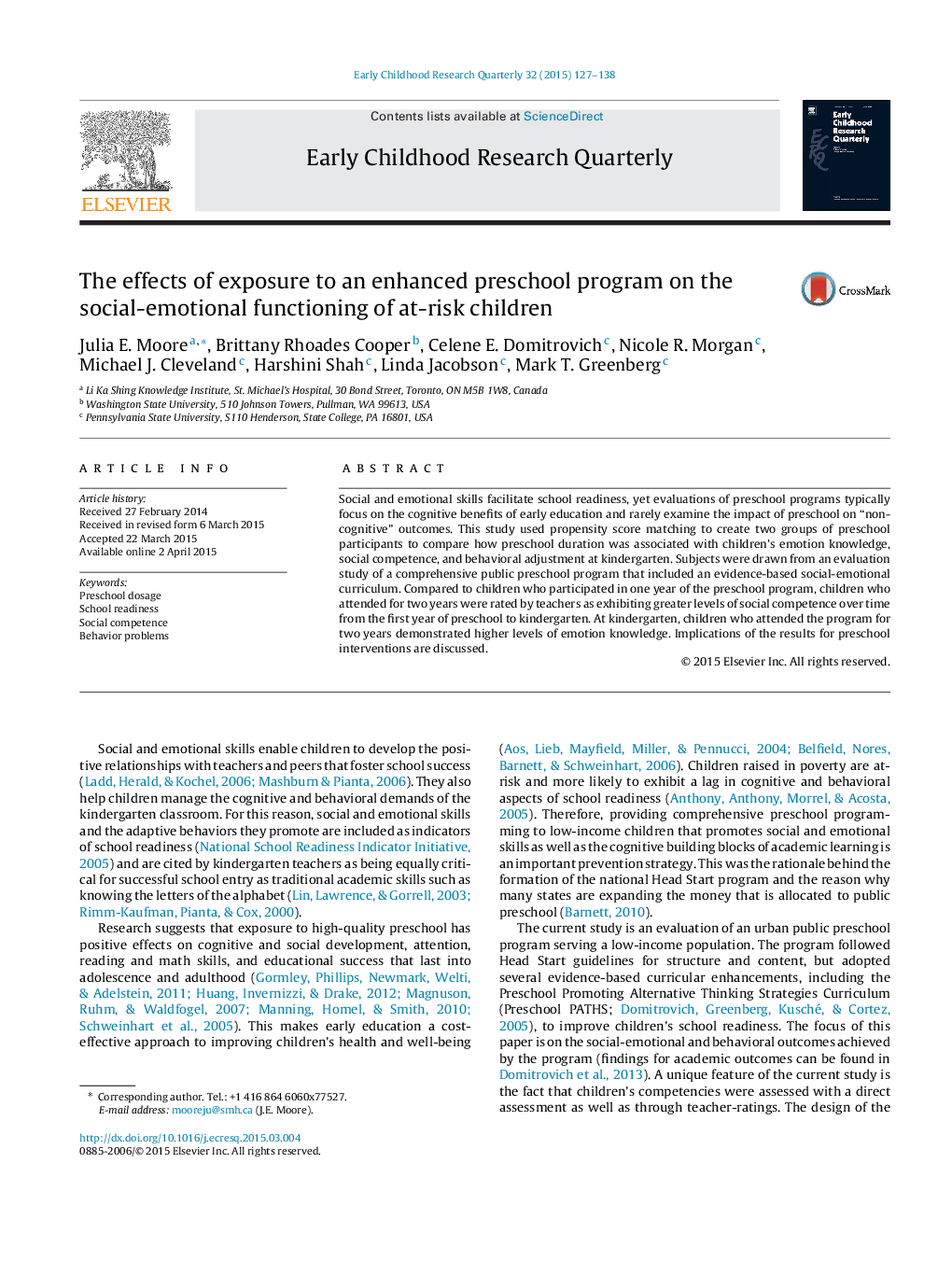| کد مقاله | کد نشریه | سال انتشار | مقاله انگلیسی | نسخه تمام متن |
|---|---|---|---|---|
| 353719 | 618939 | 2015 | 12 صفحه PDF | دانلود رایگان |
• We used multi-level models and propensity scores to evaluate how the duration of an enhanced public preschool program impacted social-emotional competence in Kindergarten.
• Compared to children who participated in one year of the preschool program, children who attended in two years had greater improvements in teacher ratings of social competence and a more rapid decline in behavior problems from the first year of preschool to Kindergarten.
• In Kindergarten, children who participated in two years of the program had higher directly tested emotion knowledge than children with one year.
Social and emotional skills facilitate school readiness, yet evaluations of preschool programs typically focus on the cognitive benefits of early education and rarely examine the impact of preschool on “non-cognitive” outcomes. This study used propensity score matching to create two groups of preschool participants to compare how preschool duration was associated with children's emotion knowledge, social competence, and behavioral adjustment at kindergarten. Subjects were drawn from an evaluation study of a comprehensive public preschool program that included an evidence-based social-emotional curriculum. Compared to children who participated in one year of the preschool program, children who attended for two years were rated by teachers as exhibiting greater levels of social competence over time from the first year of preschool to kindergarten. At kindergarten, children who attended the program for two years demonstrated higher levels of emotion knowledge. Implications of the results for preschool interventions are discussed.
Journal: Early Childhood Research Quarterly - Volume 32, 3rd Quarter 2015, Pages 127–138
